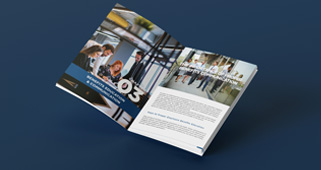In a world where unexpected events can derail the best-laid plans, protecting oneself financially becomes paramount. Disability insurance is often overlooked but is a critical component of a comprehensive financial plan. This guide aims to demystify disability insurance, explaining its importance, types, coverage options, and considerations for choosing the right policy.
Understanding Disability Insurance: Disability insurance provides income replacement in the event you’re unable to work due to illness or injury. Unlike health insurance, which covers medical expenses, disability insurance replaces lost income, ensuring you can continue to meet financial obligations such as mortgage payments, bills, and daily expenses.
Types of Disability Insurance:
- Short-Term Disability Insurance:
- Provides coverage for a short period, typically up to one year.
- Offers higher benefit amounts initially but with shorter durations.
- Often provided by employers as part of their benefits package.
- Ideal for temporary disabilities like minor injuries or illnesses.
- Long-Term Disability Insurance:
- Offers coverage for extended periods, sometimes until retirement age.
- Provides lower benefit amounts compared to short-term disability but covers longer durations.
- More comprehensive and suitable for serious injuries or illnesses that prevent long-term work.
Coverage Options:
- Own-Occupation Coverage:
- Defines disability as the inability to perform the duties of your specific occupation.
- Offers the highest level of protection as it ensures you receive benefits even if you can work in another capacity.
- Any-Occupation Coverage:
- Defines disability as the inability to work in any occupation for which you’re reasonably qualified by education, training, or experience.
- Generally less expensive than own-occupation coverage but may be more restrictive in qualifying for benefits.
- Partial Disability Coverage:
- Provides benefits if you can work but at a reduced capacity due to disability.
- Offers partial income replacement, bridging the gap between full work and complete disability.
Considerations for Choosing Disability Insurance:
- Assess Your Needs:
- Evaluate your financial situation, including income, expenses, savings, and existing insurance coverage.
- Consider factors like age, health status, family responsibilities, and job stability.
- Understand Policy Features:
- Review policy terms, including benefit amount, waiting period (elimination period), benefit period, and definition of disability.
- Pay attention to exclusions, limitations, and any optional riders for additional coverage.
- Compare Quotes:
- Obtain quotes from multiple insurance providers to compare coverage options and premiums.
- Consider working with an insurance broker who can help navigate the complexities of disability insurance and find the best policy for your needs.
- Review Employer Coverage:
- Determine if your employer offers disability insurance as part of its benefits package.
- Understand the extent of coverage provided and whether supplemental coverage is necessary to meet your needs.
- Plan for the Unexpected:
- Anticipate potential scenarios where disability insurance may be needed, such as accidents, illnesses, or chronic conditions.
- Ensure your coverage aligns with your financial goals and risk tolerance, providing peace of mind against unforeseen circumstances.
Disability insurance is a vital safeguard against the financial impact of disability, offering income replacement when you’re unable to work due to illness or injury. By understanding the types of disability insurance, coverage options, and considerations for choosing the right policy, you can protect yourself and your loved ones from the uncertainties of life. Take the time to assess your needs, explore policy features, and compare quotes to secure the disability insurance coverage that provides peace of mind and financial security for the future.






